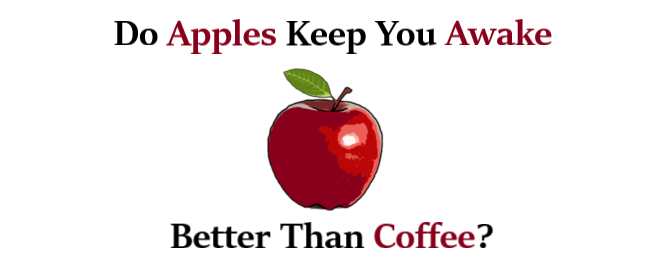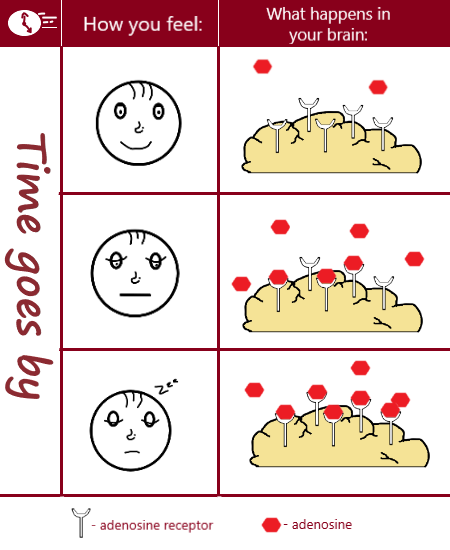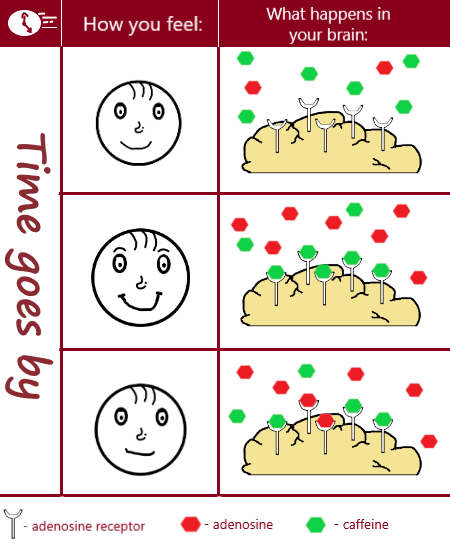A cup of Joe always helps when we struggle to get ourselves going in the morning.
But does an apple have the ability to energize us better than coffee?
Apparently, these fruits not only contain all those beneficial antioxidants, but they can also wake you up pretty well.
I decided to do thorough research on the subject and share my findings.
I found out what’s the difference between apples versus coffee when it comes to the energy they provide.
We know that the active ingredient in coffee is caffeine, but do apples have some in them too?
If not, in what way are they capable of boosting our alertness and productivity?
Would it be better for us to substitute our morning coffee with some apple juice?
Will eating apples keep you awake better than a cup of strong coffee?
If so, what happens if you eat some right before bed?
Let’s see.
Does an Apple Keep You Energized Better Than a Cup of Coffee?
Surprisingly, during my research, I found out that many people think apples do have some naturally occurring caffeine in them.
Nevertheless the energizing properties of this fruit have different origins.
Here’s whether apples could keep you awake better than coffee:
Even though apples don’t have caffeine in them, they contain natural sugars, which fuel your body.
Because of its fiber content, an apple energizes smoothly, without causing abrupt spikes in your energy levels.
Coffee, on the other hand, wakes you up through its caffeine content, which has a more noteworthy effect on the body.
It will significantly boost your alertness while getting you going relatively fast.
Overall, apples can definitely help to keep you awake, but coffee is better at quickly stimulating your alertness.
Slow Sugar Release vs. Caffeine Kick for Energy
According to the USDA, a medium-sized apple contains around 104 calories, so by consuming one you will definitely feel energized.
On the other hand, an 8 fl. oz cup of black coffee, contains only 2.37 kcal.
The stimulating effects of your cup of Joe, especially if you have yours unsweetened, come from caffeine.
Caffeine is capable of energizing us by mimicking an inhibitory neurotransmitter (adenosine), which generally makes us sleepy.
On the following infographic you can see what happens in your brain when you don’t consume any coffee:
As time passes by, the number of adenosine neurotransmitters increases, which makes us tired and sleepy.
As a comparison, here’s what happens when we drink coffee:
Since caffeine is structurally similar to adenosine it blocks its inhibitory effects.
That’s how, without calorie intake, you trick your body into feeling more energized.
Of course, the effects of caffeine are different in different people. For example, if coffee doesn’t wake you up, it may be because you’re a fast caffeine metabolizer, or you’ve built up a caffeine tolerance.
Related Post: How Long Does Caffeine Last?
According to the USDA, a medium-sized apple contains 20.8 grams of sugar, which, along with all its healthy vitamins and minerals, get absorbed into the bloodstream.
The thing is that this sugar isn’t absorbed all at once, and it won’t cause a sugar crash.
A medium-sized apple also contains 4.8 grams of dietary fiber – soluble and insoluble.
Soluble fibers help slow down digestion, which means that sugars from the apple will be slowly released, without causing any spikes in blood glucose and insulin levels.
Therefore, there is a definitive difference between the stimulating effects of apples and coffee.
By eating an apple you won’t feel a sudden burst of energy, like the one experienced after you drink a cup of black coffee.
The apple you’ve consumed will keep you awake and well-energized, without causing too much excitement, jitters, and subsequent energy crashes.
On the other hand, coffee in the morning will get you going much faster, by notably improving your alertness and productivity.
You can use that knowledge to decide when to substitute one for the other:
If you’re used to having coffee in the morning and you switch it with an apple, the alertness provided by the fruit may turn out to be too gentle for your liking.
Nevertheless, substituting your afternoon cup of coffee with an apple may actually keep you going until the evening, without possibly disrupting your sleep.
By doing the latter you will also take advantage of all the gained benefits of eating apples.
The latter is my go-to when I feel extra anxious, and I need a gentler caffeine kick.
To see a comprehensive comparison between matcha and coffee, check out this post.
What About Drinking Apple Juice?
Now you’re probably wondering whether drinking apple juice can energize you.
This value is used to show how fast or slow food causes an increase in blood glucose levels.
As we mentioned, apples do release their sugars steadily, because of their fiber.
This means that their glycemic index is low (below 55) – 36 to 38, to be exact.
Apple juice, on the other hand, doesn’t contain as much fiber. That’s why its glycemic index is a bit higher – 41 to 43.
Therefore the glucose levels will be increased at a higher pace, compared to eating a whole apple.
At the same time, it’s worth noting that a cup of apple juice contains at least 3 medium-sized apples. This will increase the amount of sugar we consume by 3 times.
On top of that, apple juice is often sold with added sugars, which would increase the glycemic index of the drink even further.
This means that after drinking a bottle of store-bought apple juice, we will instantly feel energized, but a bit later we may experience a sugar crash.
As a result, we may end up feeling even worse than before having the drink.
This is why I would recommend drinking only unsweetened apple juice to avoid a sudden decrease in energy levels a short while after consuming it.
Even though it doesn’t contain caffeine, apple juice is capable of energizing you for a short period of time.
It will not, however, keep you awake and decently energized for as long as eating a whole apple would.
At the same time – a whole apple with skin has much more beneficial nutrients compared to a cup of apple juice.
What if You Consume an Apple Right Before Bed or as a Midnight Snack?
If apples do a relatively good job at keeping you awake and increasing your energy levels, does that mean that it’s not recommended to have one before we go to bed?
Apples contain many beneficial nutrients, which make them a great midnight snack.
If you often wake up in the middle of the night with food cravings, you may benefit from eating an apple before you go to bed.
Because of its fiber content, it will keep you full throughout the night and you won’t reach out to junk food.
Nevertheless, some people with digestive issues may experience discomfort after eating an apple, which may make it hard for them to fall asleep.
Green apples may also trigger acid reflux symptoms in some acid-sensitive individuals.
Decaf coffee, on the other hand, is thought to be a better alternative to regular coffee for those who often experience heartburn.
If you’re one of those people, here are a two articles, that you may find intriguing:
That being said, apples are a great way to finish your day and their nutrients could really help to keep the doctor away.
On the following table you can see the nutrition facts of a medium-sized apple (200 g) with skin, according to the USDA:
| Name | Amount |
|---|---|
| Energy | 104 kcal |
| Protein | 0.52 g |
| Total lipid (Fat) | 0.34 g |
| Carbohydrate | 27.6 g |
| Dietary Fiber | 4.8 g | Sugars | 20.8 g | Calcium, Ca | 12 mg | Iron, Fe | 0.24 mg | Magnesium, Mg | 10 mg | Phosphorus, P | 22 mg |
| Potassium, K | 214 mg |
| Sodium, Na | 2 mg |
| Zinc, Zn | 0.08 mg |
| Copper, Cu | 0.054 mg | Vitamin C, total ascorbic acid | 9.2 mg | Vitamin B-6 | 0.082 mg | Vitamin A, RAE | 6 µg | Vitamin K (phylloquinone) | 4.4 µg | Caffeine | 0 mg |
To take maximum advantage of the fruit’s beneficial properties, you should eat it with its skin. Apple’s skin contains many antioxidants.
Final Words
You now know that apples do have the ability to keep you awake and fuel your body with energy, even though coffee is better at quickly getting you going in the morning.
It is, in fact, a myth that this fruit contains caffeine, but you can definitely have your afternoon cup of Joe substituted with it.
Drop me a comment below if you have any questions.




Thank you, great info . I try to eat apples daily , I had also heard that eating 5 apples a day was able to lower the bad cholesterol in your system. 👍🏻🍎